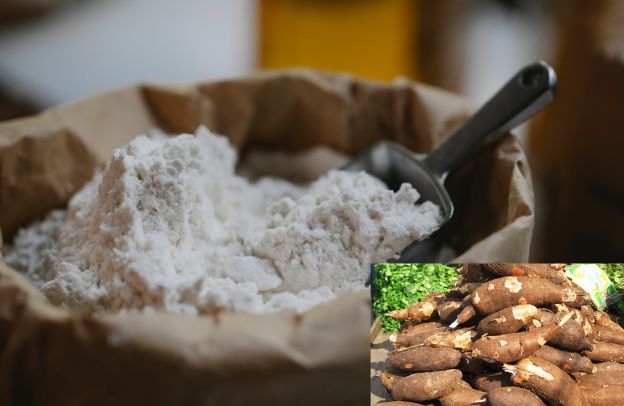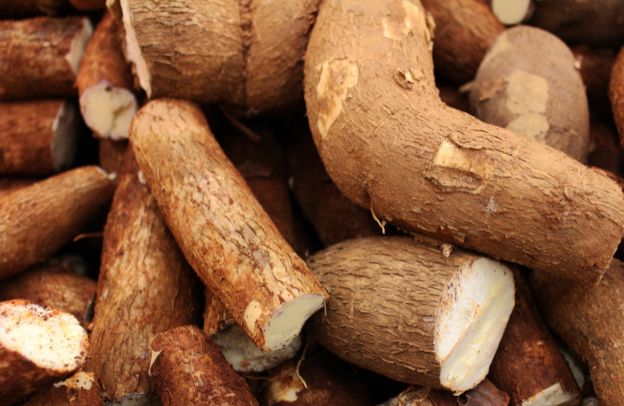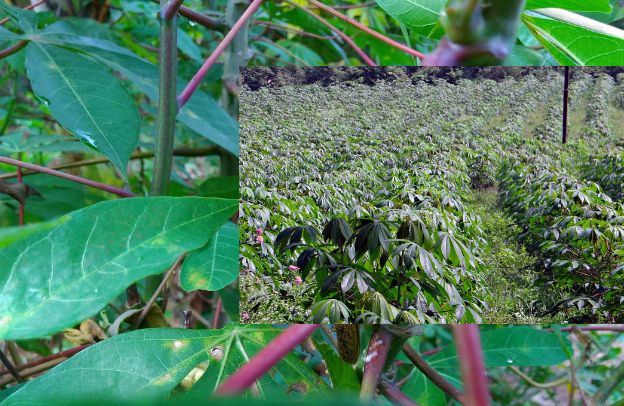Preventing Soil-Borne Diseases in Cassava Farming: Crop Rotation Strategies for Nigerian Farmers

Cassava farming is a vital source of livelihood for small-scale farmers in Nigeria, providing food and income for millions of families. However, soil-borne diseases pose a significant threat to cassava crops, leading to reduced yields and income for farmers. To combat this problem, crop rotation strategies have been identified as an effective solution for preventing soil-borne diseases in cassava farming.
In this article, we will explore the various soil-borne diseases that affect cassava crops in Nigeria and the benefits of crop rotation in preventing these diseases. Additionally, we will discuss the importance of soil management practices, such as soil testing and analysis, fertilizer management, and the use of organic matter in promoting healthy soil for cassava farming.
By implementing these strategies, small-scale farmers can improve their yields, increase their income, and safeguard their livelihoods against the devastating effects of soil-borne diseases. This article is intended to provide valuable information and practical advice to Nigerian farmers seeking to prevent soil-borne diseases in cassava farming through crop rotation strategies and soil management practices.
Understanding Soil-Borne Diseases
Several soil-borne diseases can affect cassava crops in Nigeria, including:
- Cassava mosaic disease: This is caused by a virus and is characterized by yellow mottling on the leaves, stunted growth, and reduced yields.
- Cassava brown streak disease: This is also caused by a virus and is characterized by brown streaks on the stem and yellowing and distortion of the leaves, leading to reduced yields.
- Root-knot nematodes: These are microscopic worms that live in the soil and infect the roots of cassava plants, leading to the formation of root galls and reduced yields.
Symptoms and effects of soil-borne diseases on cassava crops
The symptoms of soil-borne diseases on cassava crops vary depending on the type of disease. However, some common symptoms include stunted growth, yellowing or browning of the leaves, root galls, and reduced yields.
These diseases can have a significant impact on cassava farming in Nigeria, leading to reduced income and food insecurity for small-scale farmers who depend on cassava as a primary source of livelihood. Additionally, the spread of soil-borne diseases can lead to the loss of valuable genetic resources and threaten the sustainability of cassava farming in the country. Therefore, understanding and preventing soil-borne diseases is crucial for the long-term success and sustainability of cassava farming in Nigeria.
Crop Rotation Strategies
Crop rotation is the practice of planting different crops in the same field over a period of time. The primary benefit of crop rotation is the prevention of soil-borne diseases. By rotating cassava with other crops, farmers can disrupt the life cycle of pathogens that cause diseases in cassava crops and reduce the buildup of harmful soil-borne pathogens.
Crop rotation also helps to improve soil fertility by adding nitrogen-fixing crops to the rotation, increasing the organic matter in the soil, and reducing the need for synthetic fertilizers. This practice can lead to higher yields, improved soil health, and reduced input costs for farmers.
Types of crops for rotation with cassava
When planning crop rotation with cassava, it is important to choose crops that are not susceptible to the same soil-borne diseases as cassava. Legumes such as soybeans, cowpeas, and groundnuts are ideal for rotation with cassava because they fix nitrogen in the soil, improving soil fertility and reducing the need for synthetic fertilizers. Cereals such as maize, sorghum, and millet are also good options for rotation with cassava.
How to plan and implement crop rotation in cassava farming
To plan and implement crop rotation in cassava farming, farmers should first assess the soil health of their fields through soil testing and analysis. This will help them determine which crops are best suited for their soil type and which nutrients need to be added to the soil.
Next, farmers should plan their crop rotation schedule based on the needs of their crops and the soil health of their fields. A typical rotation schedule might involve planting cassava for one year, followed by a legume or cereal crop in the second year, and then returning to cassava in the third year.
It is important to note that crop rotation alone may not completely eliminate soil-borne diseases. Farmers should also implement other soil management practices such as the use of organic matter, proper irrigation, and appropriate fertilizer management to promote healthy soil and prevent the buildup of harmful pathogens.
Crop rotation is a valuable strategy for preventing soil-borne diseases in cassava farming in Nigeria. By rotating cassava with other crops and implementing other soil management practices, small-scale farmers can improve their yields, increase their income, and safeguard their livelihoods against the devastating effects of soil-borne diseases.
Soil Management Practices
Soil testing and analysis are crucial for determining the health and nutrient content of the soil. Through soil testing, farmers can identify any nutrient deficiencies or excesses in the soil and adjust their fertilizer application accordingly. Soil testing can also identify the presence of harmful pathogens and help farmers make informed decisions about crop selection and soil management practices.
Fertilizer management for healthy soil
Fertilizer management is an important aspect of soil management in cassava farming. Excessive or improper use of synthetic fertilizers can lead to soil degradation and nutrient imbalances, which can negatively impact crop yields and soil health. By using fertilizers in a targeted and balanced way, farmers can promote healthy soil and optimize crop yields.
To effectively manage fertilizer use, farmers should consider the nutrient requirements of their crops, the nutrient content of their soil, and the appropriate timing and application rates for their fertilizers. Additionally, farmers should consider using organic fertilizers such as compost, animal manure, and crop residues, which can improve soil health and reduce the need for synthetic fertilizers.
Importance of using organic matter in soil management
Organic matter plays a critical role in soil health and fertility. It helps to improve soil structure, water-holding capacity, and nutrient availability. By incorporating organic matter into the soil, farmers can increase soil organic carbon, which can help to sequester carbon and mitigate climate change.
Organic matter can be added to the soil through the use of cover crops, crop residues, animal manure, and compost. These materials can help to improve soil health and reduce the need for synthetic fertilizers. Additionally, the use of organic matter can help to suppress the growth of harmful soil-borne pathogens, reducing the incidence of soil-borne diseases in cassava crops.
In conclusion, soil management practices such as soil testing and analysis, fertilizer management, and the use of organic matter are critical for promoting healthy soil and preventing soil-borne diseases in cassava farming in Nigeria. By implementing these practices, small-scale farmers can improve their yields, increase their income, and safeguard their livelihoods against the devastating effects of soil degradation and soil-borne diseases.
Conclusion Preventing Soil-Borne Diseases in Cassava Farming: Crop Rotation Strategies for Nigerian Farmers
Soil-borne diseases pose a significant threat to cassava farming in Nigeria, and their impact on small-scale farmers cannot be underestimated. These diseases can reduce crop yields, increase production costs, and ultimately threaten the livelihoods of small-scale farmers.
The role of crop rotation and soil management practices
Crop rotation and soil management practices are essential for preventing soil-borne diseases and promoting healthy soil in cassava farming. By implementing these practices, small-scale farmers can reduce the incidence of soil-borne diseases, improve soil health, and optimize their yields.
Encouraging small-scale farmers to adopt these strategies to improve their yields and livelihoods
Small-scale farmers in Nigeria can benefit greatly from adopting crop rotation and soil management practices. These strategies can improve their yields, reduce their production costs, and safeguard their livelihoods against the devastating effects of soil-borne diseases and soil degradation.
Therefore, it is crucial to encourage small-scale farmers to adopt these strategies by providing them with training, education, and resources to implement these practices effectively. By doing so, we can promote sustainable cassava farming in Nigeria, improve the lives of small-scale farmers, and ensure food security for future generations.





